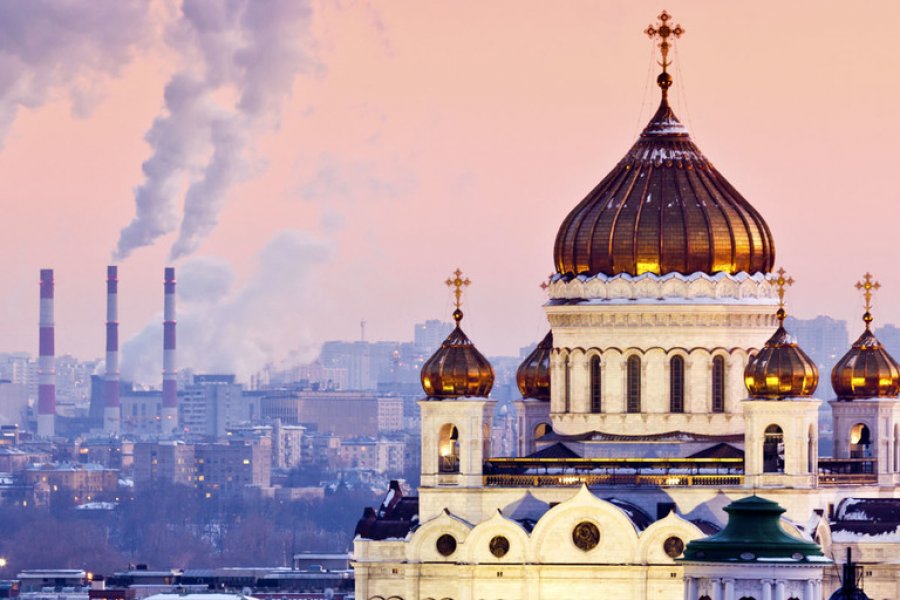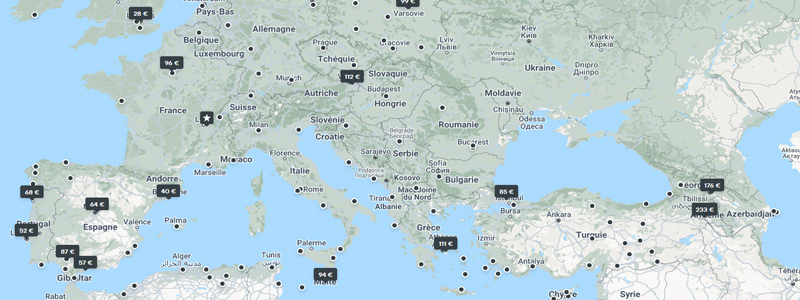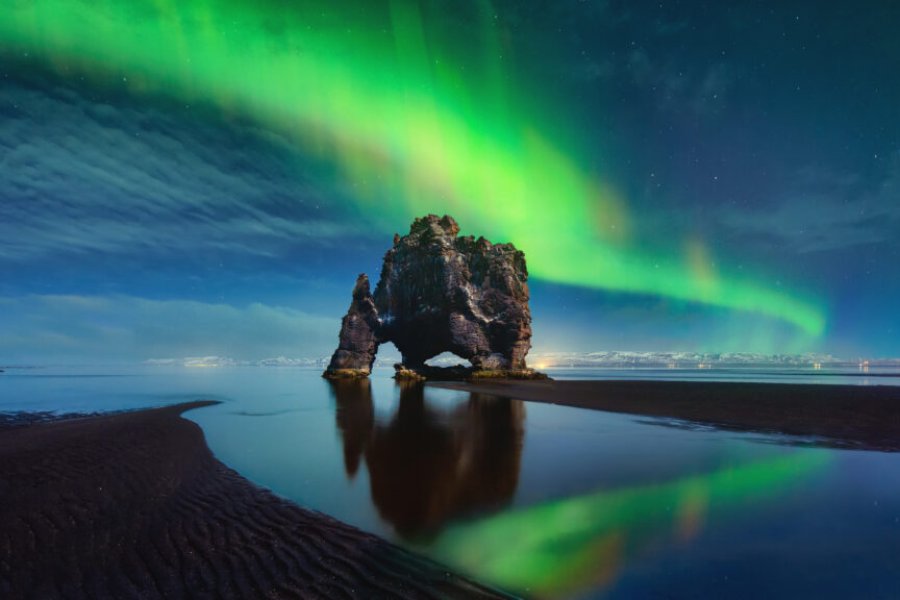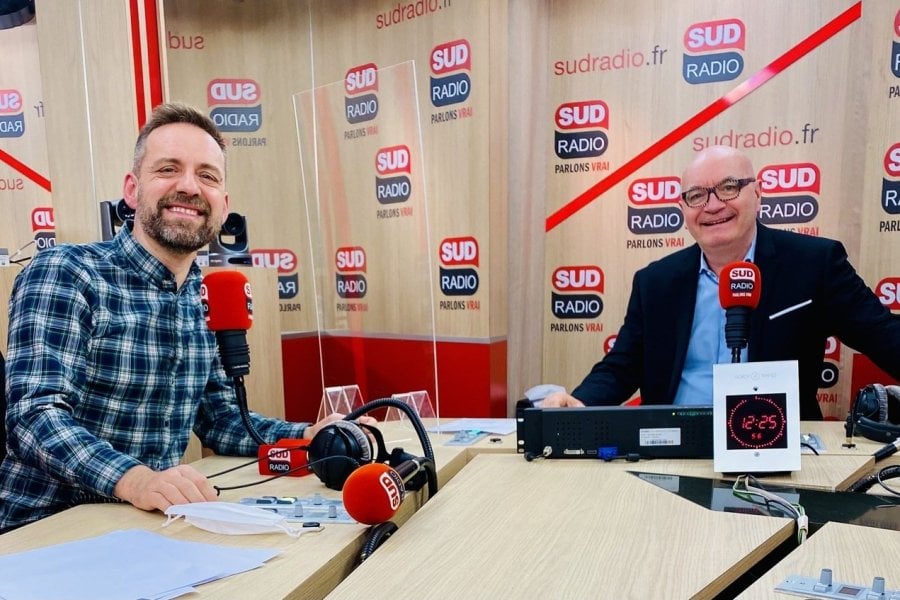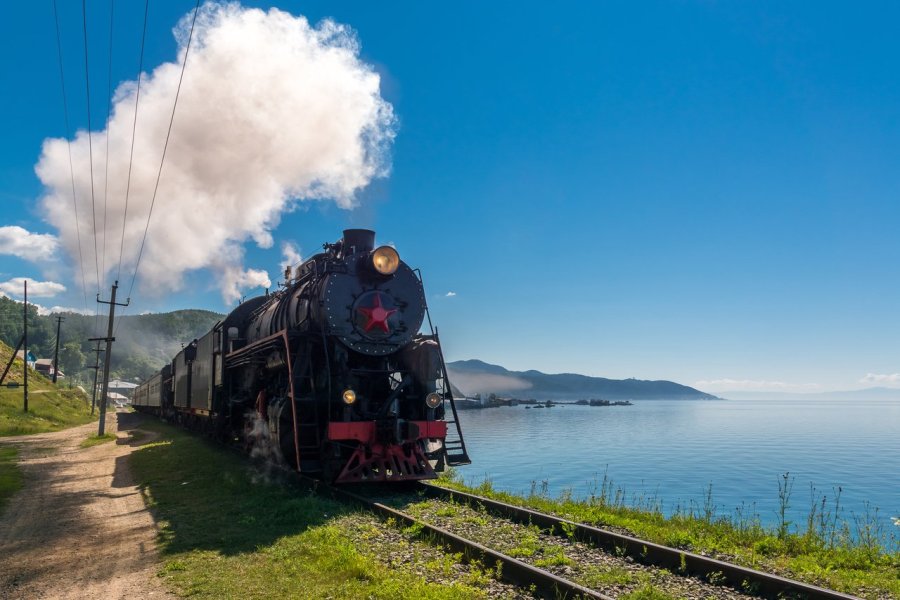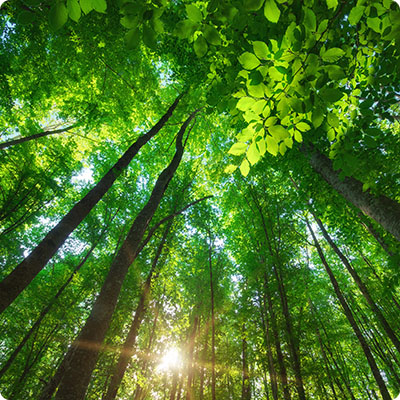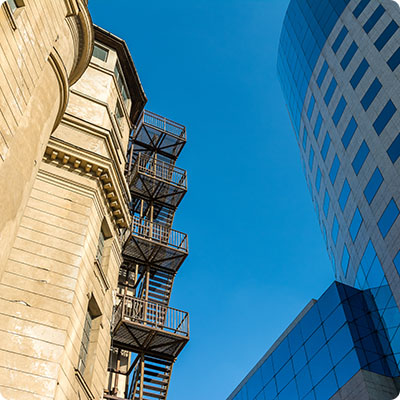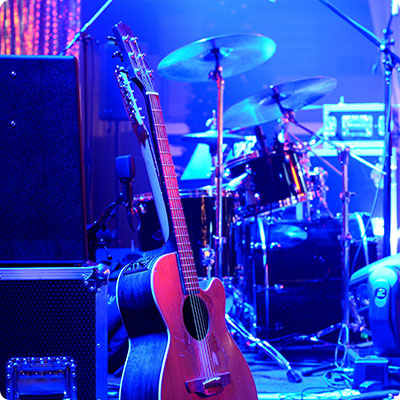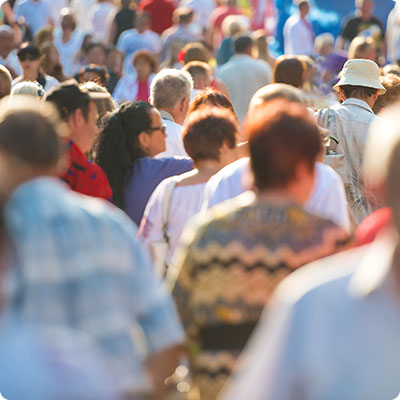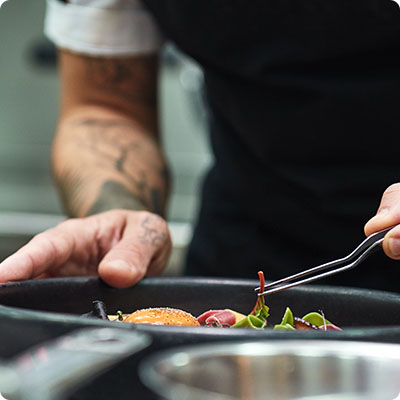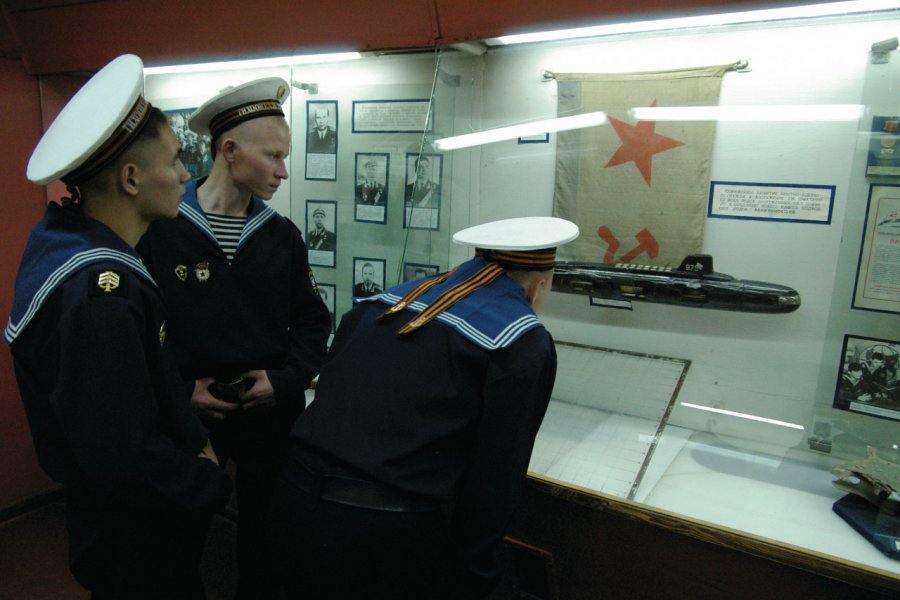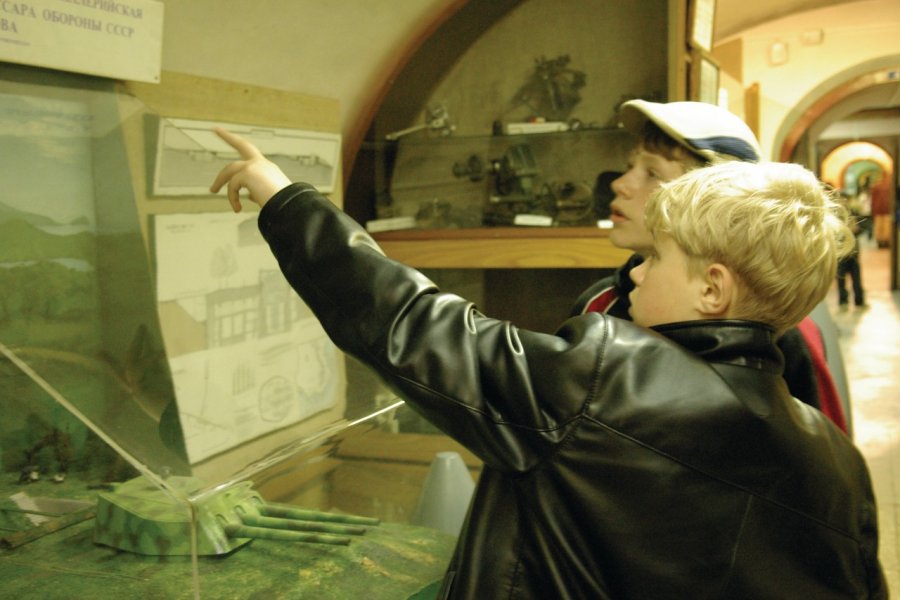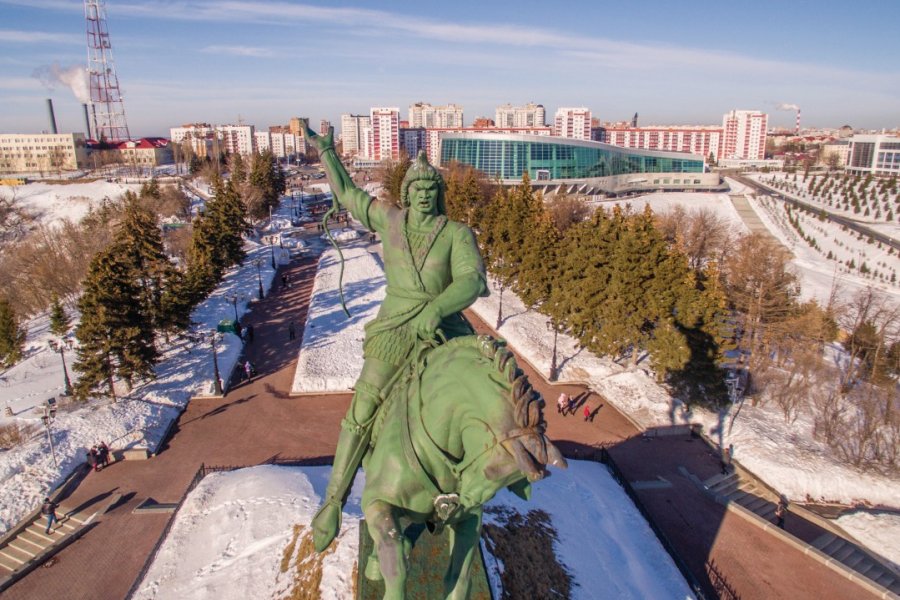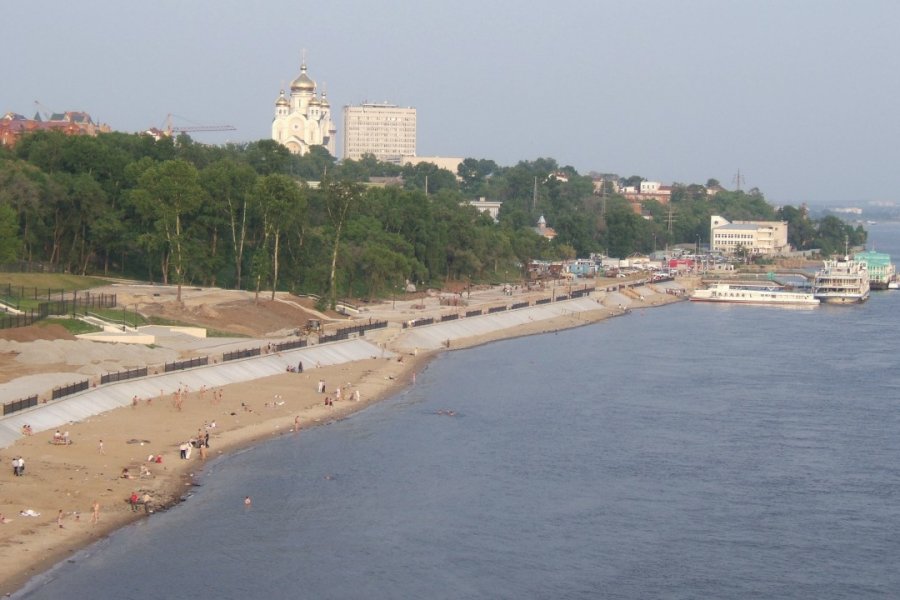Travel guide Russia
It is the largest nation in the world. Bordering Europe and Asia, the Pacific Ocean and the Arctic Ocean, Russia is 10,000 km long. Its landscapes vary from tundra to subtropical beaches, from birch forests to taiga, from the mountains of theUrals to the steppes of Central Asia and up to the highest mountains, close to China, which erect their Communist peak (7,495 m) and their Lenin peak (7,134 m). This country makes you dizzy! And to get a feel for its variety, to come across dachas and bulbous bell towers, statues of socialist realism and other vestiges of communism, the best thing is to travel from one end to the other on the Trans-Siberian Railway, samovar within reach. We will inevitably stop in its two flagships. St. Petersburg, on the one hand, the ancient capital, the sumptuous city of Peter, founded by the Russian emperor Peter the Great, with its famous baroque winter palace which now houses part of the Hermitage museum's collections. Moscow, on the other hand, the capital, with its Red Square and the Bolshoi Ballet, one of the cultural symbols of Russia. Among the must-sees (but you will not see everything in one stay): the Golden Ring and its churches, Lake Baikal, Vladivostok, Kamchatka, a paradise for wild hikers, Karelia... And when you will have eaten several versions of borscht, drunk vodka and appreciated Russian caviar, you will have to find the Russian chapkas and dolls that you will bring back as a souvenir.
What to see, what to do Russia?
-
Book an activity
-
Customized travel
- The most beautiful cities Russia
When to go Russia ?
No, Russia is not covered with snow all year round and contrary to popular belief you can enjoy this destination in any season. The Russian winter is splendid, immaculately white. February and March are the best months, because the nights are shorter and the snow is still everywhere. With the right equipment, and as long as you don't venture too far in this season, the negative temperatures are not a real challenge. In the summer, temperatures can get very hot, especially in the city, so this is the best season to enjoy the mountains and lakes. Summer can be very hot and humid even in Siberia. A small part of the Black Sea coast near Sochi has a subtropical climate and in the North Caucasian plains temperatures of 40°C are regularly recorded in summer. Russia is therefore a country of contrasts: with the -68 °C records recorded in Oïmiakon and Verkhoïansk in Yakoutie, the temperature range is extremely important. Obviously, with such a large territory, it is difficult to give precise dates, the seasons arrive with different intensities in different regions. To visit Moscow, the Golden Ring and the Volga, the most suitable period is from June to September. But can one really see central Russia and its churches without its white coat? For St. Petersburg and the North, prefer the period between May and September, with a particular interest if you come between June and mid-July for the famous white nights. But here again, the heart of winter has something magical about it. For the Black Sea coast and the South, the period from mid-July to the end of August is the peak period for local tourists. There are two main periods to avoid: the snow melt (around mid-April, early May), and the period from mid-October to early December.
Suggested addresses Russia
Travel Russia
-
Find a hotel
-
Car Rental
-
International e-SIM package
-
Find a local agency
Find unique Stay Offers with our Partners
How to go Russia
How to go alone
Not knowing the Russian language is no longer an obstacle, except perhaps in the countryside, as English is becoming more and more widely spoken. You will easily find flights to St. Petersburg or Moscow, you can book your hotels in town from home. On the spot, according to the itinerary you have imagined, you can always connect one point to another by bus or train.
How to go on a tour
Russia tour packages are a good option. They usually take place over three weeks, which allows you to discover several regions efficiently as everything is organized and you will not waste your time looking for your route or your accommodation. Another advantage is that you don't have to worry about your visa.
How to get around
Domestic flights are efficient but expensive. Take at the bus station, buses and marshrutkas that criss-cross the country at unbeatable prices. But it is the train that will make you take the measure of the country, samovar within reach of cup, with or without berth. A high-speed train connects Moscow and St. Petersburg in 5 hours. Cruise ships travel the rivers. In Moscow, boats sail on the Moskva River at a low price. In Moscow and St. Petersburg, prefer cabs to buses.
Featured articles Russia
Discover Russia
Russia is probably one of the most fascinating destinations for travellers from all over the world, but its image is often adorned with clichés. But are they really? To allow you to get to the heart of the matter before you set foot there, this chapter offers you an overview of the history that has shaped this country as vast and multiple as a continent, of its cultural, ethnic or architectural melting pot. You will also learn more about the country's economic and social issues, its rich and varied culinary traditions, but also its legendary climate... from the Volga River to the Trans-Siberian Railway, including vodka and the history of its tsars, we try to give you a portrait of a country with a thousand faces!
Pictures and images Russia
The 12 keywords Russia
1. #Baths

Sauna and Russian bath (bania) are very popular in Russia where, during the harsh winters, it is customary to warm up by flogging oneself with a kind of small broom made of birch branches. Bathing is an art of living: you spend your Saturday afternoon there, you eat and drink. The luckiest ones have a sauna in their dacha!
2. #Calendar
It is well known that the October revolution was in fact a November revolution. In 1918, the new Soviet government set the record straight by adopting the Gregorian calendar. But religious holidays still follow the 13-day Julian calendar: Christmas is celebrated on January 7 and the Old New Year on the evening of January 13.
3. #Cyrillic

This alphabet was created in the 9th century by the Byzantine monks Cyril and Methodius for liturgical purposes to evangelize the Slavs. It consists of 33 signs that can be learned in just a few hours. Then, nothing could be simpler to get off at the right station or find a coffee: in Russian, almost all the letters are pronounced.
4. #Datcha
Ah... the dacha, that small space of its own, far from the impersonal community of Soviet checkered cities. Russians love the countryside and many of them migrate on Friday evenings to their small, even very modest, houses outside the city. Small isba of painted wood, a small flowery garden by the roadside, a few vegetables: happiness!
5. #Measurement
A stereotype with its share of truth: in Russia, you have to think big (not to mention the size of the country). The largest bridge, the largest housing complex, the largest bookstore, the largest number of rooms in a hotel? A tendency to excess, which is embodied in the infrastructure, but also love and resistance!
6. #Kvas
If you spend the summer in Russia, you will surely come face to face with a yellow cistern bearing the arms of KBAC (kvas), the traditional Slavic fermented drink made from stale bread. Halfway between cider and Coca-Cola depending on the preparation, kvas is very thirst-quenching and, it seems, excellent for your health.
7. #Orthodoxy

The link between the Orthodox religion and Russian identity is as complex as Russia, between a "Third Rome" Moscow and communist Boga Net ("There is no God"). Since 1991, Russia's religious revival has been primarily political: the patriarch is close to the president and conservative spiritualities serve the government.
8. #Aboriginal People
Aboriginal, indigenous, national... the situation of the peoples colonized by the Russians varies, but their fate is generally not enviable, despite the official discourse that values the country's diversity. From the Far North to the Caucasus, people have fought to preserve their traditions and their land, and ecology is the new battle horse.
9. #Poetry
Failing to grasp the particularities of a Russian soul that exists only in the imagination of Europeans, you can try to get closer to it by immersing yourself in the writings of Russian poets who, for centuries, have set the rhythm of the daily lives of the country's inhabitants. After all, poetry in Russia is almost a matter of spirituality..
10. #RuNet
The Russian part of the internet is called RuNet: a collection of social networks, search engines and sites designed by and for Russians. The goal is political (digital sovereignty), but also practical, as Western sites are not adapted to the particularities of Russian. Forget Facebook and Google, this is Yandex, Vk and Telegram!
11. #Theatre

Russians love to go to the theatre and have produced some of the most talented playwrights and choreographers in the world. The USSR has scattered the country with a dense network of public theatres: prices are affordable and people go there very regularly. And Russian-speaking or not, it is absolutely necessary to take the opportunity to see an opera or a ballet!
12. #Vodka
Another stereotype that's having a hard time! Vodka consumption in Russia is much lower than it used to be, and it is now considered bad enough to drink too much. A few rules to follow though: we avoid cheap vodka, we don't drink without toasting and of course, we don't mix! Russian vodka is delicious, so it should be drunk neat
You are from here, if...
You're not afraid of distance or the road. You have mastered the art of travelling and the waiting that goes with it, whether you want to spend several days on the train or make a round trip to the avtovokzal to find out the schedule of the next marchroutka!
You have the RuNet reflex, and can order a YandexTaxi, orient yourself on YandexMaps and check the restaurant schedule on Vkontakte.
But don't forget to read: wherever you are, you always carry a book with you. There's nothing better than a classic of Soviet literature to enjoy the Moscow metro.
You don't miss a chance to drink tea anymore. At the restaurant? Tea. On the train? Tea. In the morning? Tea. In the evening? Tea. You know how to handle the samovar, and serve tea "à la russe" by pouring a very concentrated decoction first and then adding water. Finally, in the event of a tea bag, you know how to save it by passing it from one cup to another.

